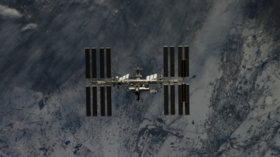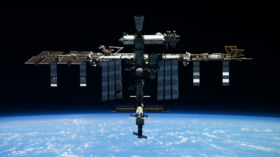Russia warns about age of International Space Station

Accidents are bound to occur more frequently on board the International Space Station (ISS) due to its age, Yury Borisov, the head of the Russian space agency, Roscosmos, has said.
Another major threat to the ISS is the abundance of space junk in low Earth orbit, Borisov told reporters on Friday when asked about the causes of the apparently growing number of emergency situations at the station.
“On the one hand, this is the age of the station; on the other hand, this is the presence of artificial debris that is in low-Earth orbit, it requires constant monitoring and elimination,” Borisov stated.
He added that space junk will become a problem for everyone eventually, as it will pose a threat not only to the ISS, but to other objects in low Earth orbit.
“[The problem] needs to be taken very seriously, comprehensively addressing issues of protection from garbage, as well as timely monitoring and evading it,” he said.
The remarks come days after the ISS, which was originally launched in 1998, suffered a new leak. Earlier this week, the leak was detected at the latest addition to the station, the Russian Nauka space lab module.
According to a preliminary evaluation by Roscosmos, the module was leaking coolant in its secondary radiator system. While the leak apparently ceased on its own, Russian cosmonauts Oleg Kononenko and Nikolay Chub are set to examine the radiator later this month to find the leak and determine its cause.
Over the past year, the Russian part of the station has suffered various leaks. On two occasions, Russian spacecrafts – the Soyuz MS-22 and Progress MS-21 – were punctured by small meteoroids while docked at the ISS.
Earlier this month, Borisov said Russia will continue to take part in the ISS program until at least 2028. “Further participation will be determined by the technical condition of this station. Unfortunately, this wonderful project will end someday and the station will cease to exist. My colleagues and I will make every effort to properly deorbit it.”













